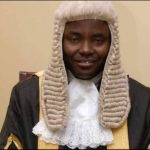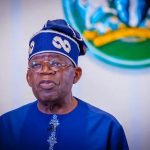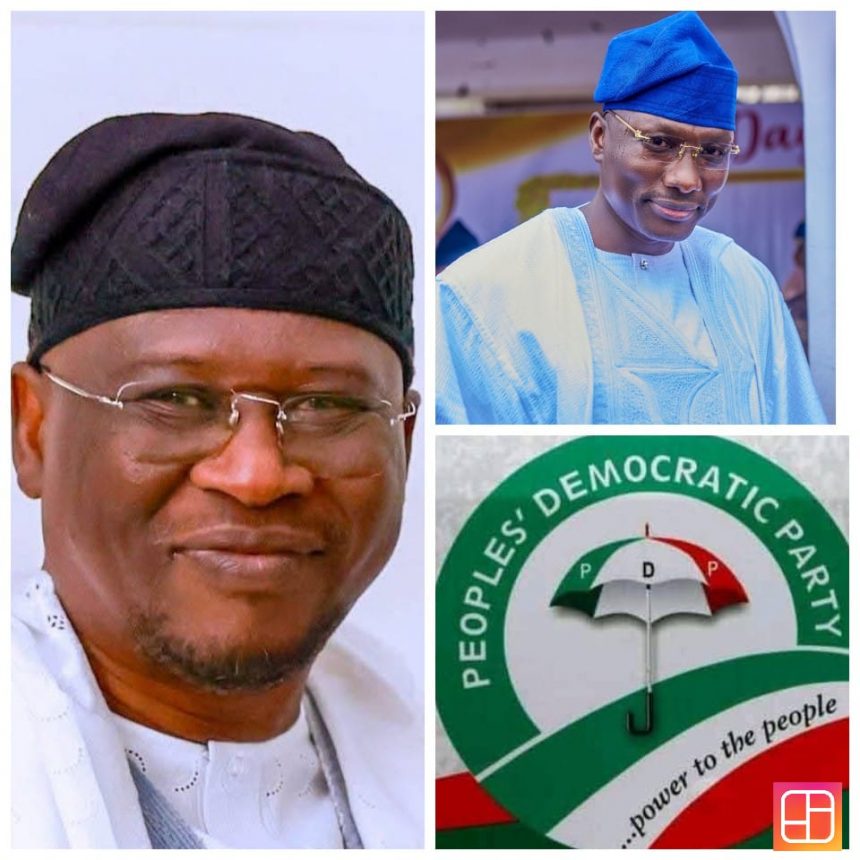THE MEN WHO STOOD FOR THE LAW: GOVERNOR FINTIRI AND SENATOR LADO DANMARKE AS THE CONSCIENCE OF A BROKEN CONVENTION
By Richard Odeyemi
In moments of political turbulence, when institutions wobble and self-interest threatens to overwhelm due process, a nation looks instinctively toward the few who rise above the chaos. The recent events surrounding the purported PDP convention in Ibadan presented one such defining moment, a scenario that separated those driven by ambition from those governed by conscience. While Governor Ahmadu Umaru Fintiri earned national commendation for insisting on compliance with judicial orders, it is equally imperative to highlight the extraordinary and principled stance of Senator Yakubu Lado Danmarke, whose refusal to participate in an illegality stands today as one of the most courageous acts of political integrity within the party.
In a political culture where aspirants are often desperate to “participate and sort it out later,” Senator Lado Danmarke chose the narrow path of honour. His decision to withdraw was grounded on conflicting court orders that made continuation illegal; his personal commitment to party discipline, legality, and due process; his refusal to be part of any process that may later be nullified or bring embarrassment to the party; and binding judicial precedents including Emeakayi v. PDP (2021) NWLR, where participation in illegitimate primaries was held against aspirants. Unlike many who disregarded the storm, Senator Lado refused to gamble with illegality. He protected his political integrity, safeguarded the legitimacy of future candidacy, and upheld the supremacy of the judiciary, a standard rarely witnessed in today’s politics.
His stance aligns squarely with PDP Constitution Articles 7 and 8, which emphasise discipline and compliance with the rule of law. It reinforces the Supreme Court’s warnings in Shinkafi v. Yari (2016) that aspirants who participate in illegitimate processes lose both moral and legal standing. By stepping aside, Senator Lado Danmarke did not step back; he stepped up. He became a symbol of compliance, a defender of party sanctity, and the shining star of a convention marred by disobedience. History will record that when legality was under attack, Lado chose to stand with the law.
This moral clarity becomes even more essential when contrasted with the broader legal context. Two Federal High Court judgments, not ex parte orders, had already pronounced on matters directly affecting the validity of the convention. Under Section 287(3) of the 1999 Constitution, decisions of the Federal High Court are binding on all persons and authorities. This means a political party cannot ignore or review a subsisting court order; neither the National Working Committee nor any organ can lawfully override a court judgment; and any act done in violation is null and void ab initio. This legal position is reinforced by judicial precedents, including INEC v. Musa (2003), Ojukwu v. Military Governor of Lagos State (1986) and Ugwu v. Ararume (2007), which collectively affirm that political actors must operate strictly within the law and their constitutions.
This stance is further buttressed by the PDP Constitution (2017 as amended). Article 33(1) insists that conventions must be conducted strictly in line with the Constitution and national laws. Article 46(1) mandates absolute obedience to legitimate court orders. Article 47(6) requires immediate compliance in the event of legal disputes. Given these provisions, the Ibadan gathering ceased to be a legitimate convention the moment the judgments were confirmed.
It is within this context that Senator Lado Danmarke emerges not just as a participant or aspirant but as a symbol of what political leadership should be: disciplined, principled, and guided by the constitution. While others scrambled to secure personal advantage, he upheld the party’s dignity. While others gambled on illegality, he stood firm on legality. While others allowed emotion and factionalism to overshadow constitutional truth, he chose clarity, integrity, and responsibility.
In this same spirit, Governor Ahmadu Umaru Fintiri’s decision to walk away from the compromised process strengthened the moral framework of the party. He walked into the convention as Chairman of the Organising Committee and walked out as the conscience of the exercise. Yet Senator Lado’s position adds an even deeper dimension to the moral correctness of that moment, for he demonstrated that even aspirants are bound by the law and that honour sometimes requires withdrawing rather than participating in illegality.
By contrast, the insistence of a faction led by Governors Seyi Makinde and Bala Mohammed to proceed with the illegal convention violated Section 287 of the Constitution, breached the PDP Constitution, disregarded judicial authority, and undermined the sanctity of internal party democracy. Regardless of the justification, political expediency can never supersede the rule of law.
Thus, this article reinforces and expands the earlier piece: that Governor Ahmadu Umaru Fintiri demonstrated courage and restraint; that Senator Yakubu Lado Danmarke stood taller than many by refusing to legitimise a tainted process; and that those who chose to proceed dragged the party into avoidable disrepute. Political parties survive only when men of conscience defend their foundations. In Ibadan, the line between legality and illegality was unmistakably clear, and Senator Yakubu Lado Danmarke stood on the right side of history, obedience, and honour.












